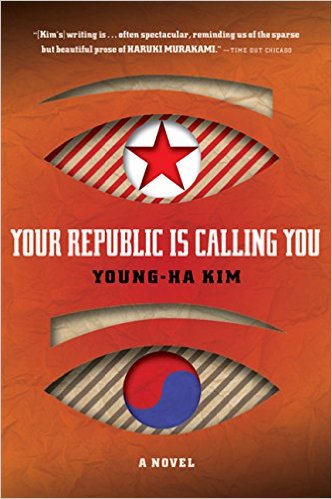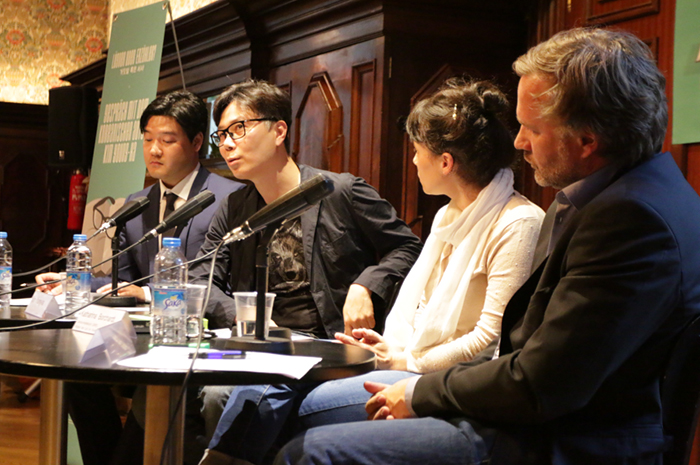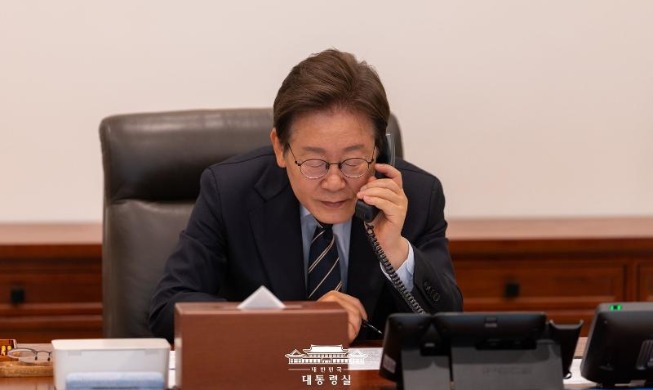For many years, an average English reader would be forgiven for thinking that there was very little of interest in the world of Korean books. The only English-language texts that came out of Seoul's publishing houses were rabidly anti-communist heavy-handed history tomes, anthropology textbooks outlining the miraculous health benefits of fermented cabbage and the wonders of having four seasons, and economic miracle recipe books that gave sole credit to -- in decreasing order -- wise sages at the Ministry of Finance, self-sacrificing male Stakhanovites in the factories, and chaste women in Hanbok at home nursing sons. Surprise, surprise, then, to find in the 1990s that there was actually a real body of modern Korean literature.
Riding the South Korean demographic boom, a wave of new authors finally hit the bookshops at the end of the century. Authors like Shin Kyung-sook (신경숙) (b. 1963), Gong Ji-young (공지영) (b. 1963), Han Kang (한강) (b. 1970), Song Sokje (성석제) (b. 1960) and Bae Su-ah (배수아) (b. 1965) were all coming out with bestsellers, and they were writing in their vernacular, too. The book industry boomed and Korean authors began to appear in English-language bookstores from Adelaide to Zurich. Among this crowd was Kim Young-ha (김영하) (b. 1968).
More like pop-lit or lit-lite than proper literature, Kim has written at least 11 novels, and four or five of them have been translated into English and Spanish, the two biggest book markets in the world. If you're an Asian author, you must be translated to survive. Kim also has novels that have been translated into German and French, as well as Turkish, Dutch and even Lithuanian. He has won a clutch of Korean-language literary awards, a few of his thrillers have been made into movies, and one was even made into a musical. Needless to say, the man lives in Manhattan nowadays: he's a true New Yorker.

"Liquidate everything! Return immediately!"
"Your Republic is Calling You" (2006) is the author's third novel, and second translated into English. As you open the first few pages, you step into a late-Cold War international spy thriller set between the two Koreas, with enough pop culture references to fill a Wikipedia page. The characters rifle through Heineken beer, Beatles songs, B.B. King, brand name this and that, Volkswagen cars, William Shakespeare, menthol cigarettes and a fair dose of porn, all carefully enunciated and described, as if author Kim is stating loudly and clearly that he, too -- much like the nation of South Korea itself -- has arrived: even North Korean spies are now part of global consumerism, global pop culture and global trends.
Like an episode of the schlock thrill-a-minute TV show "24," "Your Republic is Calling You" unfolds across 24 hours, with each chapter or section moving you one or two hours forward in time: 7 a.m., 9 a.m., 10 a.m., and so on, with the story ending in the tightly-written 3 a.m., 5 a.m. and, finally, 7 a.m. chapters the next morning. A new day dawns.
The novel winds you up, tenser and tenser, like a ratchet ready to pop, as family history, lost connections and layered levels of bonafide betrayal build toward the final pages. The tale takes us from dictatorial, police-state South Korea in the 1980s, with its Wild West economic shenanigans, through the democracy movement in 1988 and 1989, and toward the modern, free, law-abiding nation that emerged in the 1990s. Author Kim Young-ha, with this pop thriller novel, offers the Korean nation one of the most soothing balms to the scars of modern history, a 20th century existence that dragged the Korean Peninsula from late Joseon and into modern South Korea. His 24-hour action tale covers colonialism, exploitation, communism and collaboration, a divided country, two economic systems, secrets and more secrets, and the only healing salve is time; time, as it ticks forward, hour by hour. Tick. Tock.
"This is Lotte World."
However, there's actually very little Bond and very little Bourne in the novel. To a Don Draper degree, our main character has grown into his assumed persona. The whole concept of being a "spy" or being "undercover" is more of an allegory for life: we have our inner thoughts and we have our outer actions. What is real? As Jean Valjean asked, "Who am I?"
This plays out quite delicately with the tale's two other main characters. Nicely dovetailing with our spy's coming to grips with self-realization are the stories of the two main supporting characters, his wife and his daughter. Both are progressing through their own 24-hour steps toward self-realization. The wife has infidelity, alienation and even smoking to deal with. The daughter has being a teenager, boys, growing up and homework to deal with. Author Kim weaves the tick-tock thought process of both the wife and the daughter in and out throughout our spy's 24 hours, as the life he has known begins to change indubitably.
In the opening chapters, there are jumps between these three characters, these three trains of thought, from chapter to chapter, taking us across Seoul and across the three main characters' story arcs. As the plot develops, however, we get more time with each character, learning their ins and outs, hearing their internal thoughts, feeling their inside emotions. All three are undercover in one way or another, and all three are spies in some way, either literal or figurative.
Oh, and the comparisons between the saccharine orchestrations at Lotte World, the world's largest indoor amusement park, and the deadly serious orchestrations that march across plazas in Pyongyang, the world's sole prison camp nation state, are particularly acute.

"He opens his eyes. He feels heavy and his I breath stinks."
As easy as Kim Young-ha is to read, there was an egregious grammatical error -- an excess word, clearly left over from an earlier edit of the copy -- in the first line on the first page. Having such a glaring error in the second sentence of a new novel is amateurish at best and incompetent at worse. It's unfortunate that an otherwise pithy read is marred by an elementary school error in the first line. If this were North Korea, we'd round up either the translator or the publisher -- or both -- blindfold him, give him a cigarette and have him face the firing squad. However, this is South Korea, so we merely click our tongues and read on.
The Los Angeles Review of Books tried its hand at Korean literature in May 2013, and specifically looked at Kim Young-ha ("Lost Causes: The Novels of Kim Young-ha"). The pre-1990s broader world of Korean literature was described by Colin Marshall in those pages of as, "...mired in nakedly melodramatic, discomfitingly direct meditations on national suffering in general, and the separation of North from South in particular..." Like opening a window and being enwrapped by a gust of new air, Kim Young-ha and the other authors of the 1990s wave of Korean literature were a cure to this desolate, dreary body of pre-1990s Korean books in English.
In sum, "Your Republic is Calling You" gets a solid thumbs up. It's an entertaining page-turner that you can get through in an afternoon. It has enough pathos so you care about the character arks and, most importantly, it wows you in the end. Happy reading.
By Greagory C. Eaves
Korea.net Staff Writers
Photo: The Korean Cultural Center in Germany
gceaves@korea.kr
Riding the South Korean demographic boom, a wave of new authors finally hit the bookshops at the end of the century. Authors like Shin Kyung-sook (신경숙) (b. 1963), Gong Ji-young (공지영) (b. 1963), Han Kang (한강) (b. 1970), Song Sokje (성석제) (b. 1960) and Bae Su-ah (배수아) (b. 1965) were all coming out with bestsellers, and they were writing in their vernacular, too. The book industry boomed and Korean authors began to appear in English-language bookstores from Adelaide to Zurich. Among this crowd was Kim Young-ha (김영하) (b. 1968).
More like pop-lit or lit-lite than proper literature, Kim has written at least 11 novels, and four or five of them have been translated into English and Spanish, the two biggest book markets in the world. If you're an Asian author, you must be translated to survive. Kim also has novels that have been translated into German and French, as well as Turkish, Dutch and even Lithuanian. He has won a clutch of Korean-language literary awards, a few of his thrillers have been made into movies, and one was even made into a musical. Needless to say, the man lives in Manhattan nowadays: he's a true New Yorker.

'Your Republic is Calling' is translated into English by Kim Chi-Young and put out by Houghton Mifflin Harcourt in 2010.
"Liquidate everything! Return immediately!"
"Your Republic is Calling You" (2006) is the author's third novel, and second translated into English. As you open the first few pages, you step into a late-Cold War international spy thriller set between the two Koreas, with enough pop culture references to fill a Wikipedia page. The characters rifle through Heineken beer, Beatles songs, B.B. King, brand name this and that, Volkswagen cars, William Shakespeare, menthol cigarettes and a fair dose of porn, all carefully enunciated and described, as if author Kim is stating loudly and clearly that he, too -- much like the nation of South Korea itself -- has arrived: even North Korean spies are now part of global consumerism, global pop culture and global trends.
Like an episode of the schlock thrill-a-minute TV show "24," "Your Republic is Calling You" unfolds across 24 hours, with each chapter or section moving you one or two hours forward in time: 7 a.m., 9 a.m., 10 a.m., and so on, with the story ending in the tightly-written 3 a.m., 5 a.m. and, finally, 7 a.m. chapters the next morning. A new day dawns.
The novel winds you up, tenser and tenser, like a ratchet ready to pop, as family history, lost connections and layered levels of bonafide betrayal build toward the final pages. The tale takes us from dictatorial, police-state South Korea in the 1980s, with its Wild West economic shenanigans, through the democracy movement in 1988 and 1989, and toward the modern, free, law-abiding nation that emerged in the 1990s. Author Kim Young-ha, with this pop thriller novel, offers the Korean nation one of the most soothing balms to the scars of modern history, a 20th century existence that dragged the Korean Peninsula from late Joseon and into modern South Korea. His 24-hour action tale covers colonialism, exploitation, communism and collaboration, a divided country, two economic systems, secrets and more secrets, and the only healing salve is time; time, as it ticks forward, hour by hour. Tick. Tock.
"This is Lotte World."
However, there's actually very little Bond and very little Bourne in the novel. To a Don Draper degree, our main character has grown into his assumed persona. The whole concept of being a "spy" or being "undercover" is more of an allegory for life: we have our inner thoughts and we have our outer actions. What is real? As Jean Valjean asked, "Who am I?"
This plays out quite delicately with the tale's two other main characters. Nicely dovetailing with our spy's coming to grips with self-realization are the stories of the two main supporting characters, his wife and his daughter. Both are progressing through their own 24-hour steps toward self-realization. The wife has infidelity, alienation and even smoking to deal with. The daughter has being a teenager, boys, growing up and homework to deal with. Author Kim weaves the tick-tock thought process of both the wife and the daughter in and out throughout our spy's 24 hours, as the life he has known begins to change indubitably.
In the opening chapters, there are jumps between these three characters, these three trains of thought, from chapter to chapter, taking us across Seoul and across the three main characters' story arcs. As the plot develops, however, we get more time with each character, learning their ins and outs, hearing their internal thoughts, feeling their inside emotions. All three are undercover in one way or another, and all three are spies in some way, either literal or figurative.
Oh, and the comparisons between the saccharine orchestrations at Lotte World, the world's largest indoor amusement park, and the deadly serious orchestrations that march across plazas in Pyongyang, the world's sole prison camp nation state, are particularly acute.

Kim Young-ha, part of the wave of new Korean authors who came to the fore in the 1990s, speaks at an event hosted by the Korean Culture Center in Berlin in May.
"He opens his eyes. He feels heavy and his I breath stinks."
As easy as Kim Young-ha is to read, there was an egregious grammatical error -- an excess word, clearly left over from an earlier edit of the copy -- in the first line on the first page. Having such a glaring error in the second sentence of a new novel is amateurish at best and incompetent at worse. It's unfortunate that an otherwise pithy read is marred by an elementary school error in the first line. If this were North Korea, we'd round up either the translator or the publisher -- or both -- blindfold him, give him a cigarette and have him face the firing squad. However, this is South Korea, so we merely click our tongues and read on.
The Los Angeles Review of Books tried its hand at Korean literature in May 2013, and specifically looked at Kim Young-ha ("Lost Causes: The Novels of Kim Young-ha"). The pre-1990s broader world of Korean literature was described by Colin Marshall in those pages of as, "...mired in nakedly melodramatic, discomfitingly direct meditations on national suffering in general, and the separation of North from South in particular..." Like opening a window and being enwrapped by a gust of new air, Kim Young-ha and the other authors of the 1990s wave of Korean literature were a cure to this desolate, dreary body of pre-1990s Korean books in English.
In sum, "Your Republic is Calling You" gets a solid thumbs up. It's an entertaining page-turner that you can get through in an afternoon. It has enough pathos so you care about the character arks and, most importantly, it wows you in the end. Happy reading.
By Greagory C. Eaves
Korea.net Staff Writers
Photo: The Korean Cultural Center in Germany
gceaves@korea.kr
